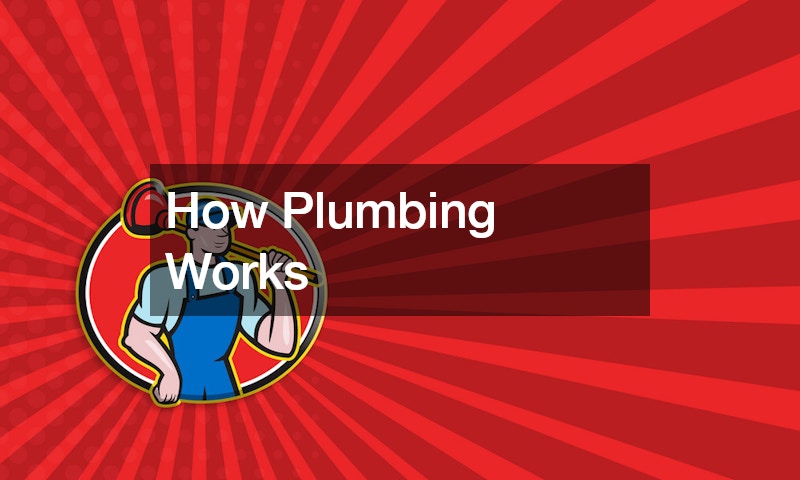How Plumbing Works
Understanding how plumbing works is essential for maintaining a functional and efficient plumbing system in residential, commercial, and industrial settings. Plumbing service professionals play a crucial role in installing, repairing, and maintaining plumbing systems to ensure proper water distribution, waste removal, and gas supply.
At its core, plumbing involves a network of pipes, fixtures, valves, and fittings designed to convey water, gas, and waste throughout a building.
Water supply lines deliver clean water from the main supply to faucets, showers, toilets, and appliances, while drain lines carry wastewater away to sewage systems or septic tanks.
Plumbing systems also include vent pipes that prevent air pressure buildup, traps that retain water to prevent sewer gases from entering buildings, and backflow prevention devices to safeguard against contamination of potable water sources.
Professional plumbing service providers possess the expertise and tools to diagnose and repair a wide range of plumbing issues, including leaks, clogs, pipe damage, and appliance malfunctions. They utilize advanced techniques such as hydro-jetting, pipe relining, and trenchless technology to efficiently address plumbing problems while minimizing disruption to the property.
By understanding the fundamentals of how plumbing works and enlisting the services of qualified plumbing professionals, property owners can ensure the reliability, safety, and longevity of their plumbing systems.

